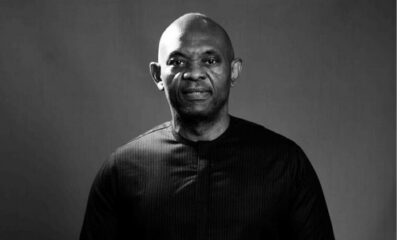At least six more people have been confirmed dead following the fire outbreak at Afriland Towers, a six-storey commercial complex located on Broad Street, Lagos Island.
The latest victims were employees of United Capital, an investment and financial services company that occupied the third and fourth floors of the building.
The confirmation comes only hours after the Federal Inland Revenue Service (FIRS) announced the deaths of four of its staff members in the same incident on Wednesday evening.
The fire, which reportedly broke out in the inverter room at the basement around 1:30 p.m. on Tuesday, generated thick smoke and caused widespread panic among occupants. Witnesses said some individuals attempted to escape through windows as emergency teams fought to contain the blaze.
Operatives of the Federal Fire Service, Lagos State Fire and Rescue Service, and other first responders evacuated at least nine people from the tower. Five of them were resuscitated, while four remained unconscious at the time.
“A total of nine victims have been rescued. Five individuals have been resuscitated. Several others escaped unhurt, while efforts are ongoing to revive the remaining four,” the Lagos State Fire and Rescue Service said in an earlier update, raising fears of possible casualties.
In an official statement released on Thursday morning, United Capital confirmed that six of its staff had died in the incident. The new figure brings the total number of confirmed deaths from the Afriland Towers fire to 10.
“It is with profound grief that the Management and Staff of United Capital Plc announce the passing of six of our dear colleagues, following the tragic fire at Afriland Towers on Tuesday, September 16, 2025.
“Our departed colleagues were an integral part of our company and family. Their painful loss leaves an immeasurable void. We extend our deepest and heartfelt condolences to their families, friends, and loved ones, and we continue to hold them in our thoughts and prayers, as well as provide all the support we can to them during this most difficult time.
“We are making preparations for an appropriate memorial service to honour their lives and mark their passing with dignity and solemnity. We thank the emergency services and all those who responded for their valiant assistance at the time of the incident.
“In this moment of untold grief, we stand together in solidarity, drawing strength from one another as we navigate this period. May the souls of the departed rest in peace,” the company stated.
Authorities earlier confirmed that several occupants were rescued from the inferno, which was suspected to have been triggered by an inverter explosion. However, no official casualty figure has yet been issued.
Efforts to obtain confirmation from the Lagos State Fire and Rescue Service, the National Emergency Management Agency (NEMA), and the Lagos State Emergency Management Agency (LASEMA) were unsuccessful as of press time.

 BIG STORY3 days ago
BIG STORY3 days ago
 BIG STORY2 days ago
BIG STORY2 days ago
 BIG STORY2 days ago
BIG STORY2 days ago
 BIG STORY21 hours ago
BIG STORY21 hours ago
 BIG STORY23 hours ago
BIG STORY23 hours ago
 BIG STORY3 days ago
BIG STORY3 days ago
 BIG STORY2 days ago
BIG STORY2 days ago
 BIG STORY2 days ago
BIG STORY2 days ago























